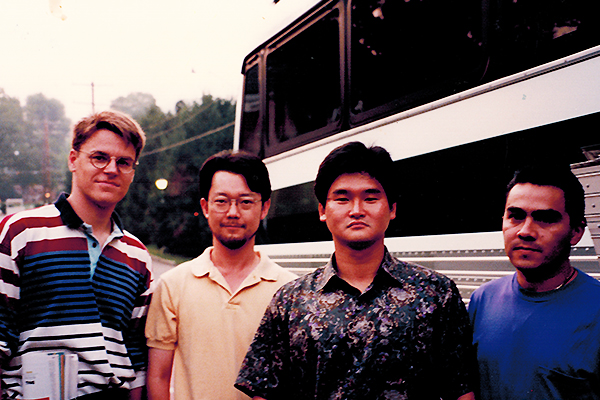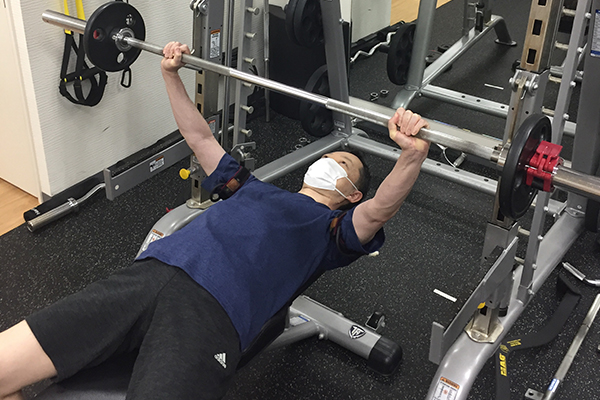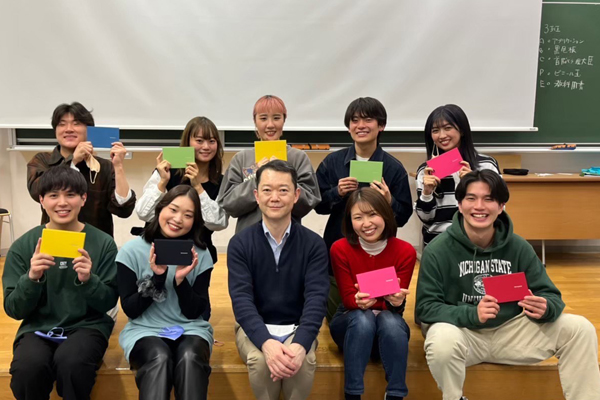reseach
Exploring a tradition alive in Japanese literature from the perspective of comparative literature
Masaaki Kinugasa, Professor
Department of Intercultural Communication, Faculty of Intercultural Communication
Posted Feb.20,2023
Faculty Profile
Professor Masaaki Kinugasa works on researching Japanese literature from an international perspective, making use of his experience studying in the United States. He is conducting research to find a tradition inherited from the past in literary works and to pursue its essence.
Pursuing the essence of Japanese tradition by exploring the "outside" of literature
I am exploring a tradition alive in Japan from the perspective of comparative literature.
When I was an undergraduate, I read French literature and studied the influence of foreign works on Japanese literature. After that, I decided to study abroad because I wanted to look at Japanese literature while immersing myself in a foreign culture. When I approached Japanese literature from an “outsider's” perspective, I found that expressions and sensibilities naturally accepted in Japan are not necessarily easy for foreign researchers to understand and sometimes became a source of discussion. I realized that a unique literary tradition was formed in Japan, which stimulated my curiosity.
My research has two pillars. One is to explore the history of literary studies—to review the circumstances surrounding literature and the social role that literature has played—by tracing the trajectory of literary research in order to question the significance of literature. The other is to explore the essence of traditions alive in Japan by comprehensively studying literature from the “outside” and comparing past literature and current literature.
When we trace the origin of tradition, we can see that classical literature, especially waka poetry, has a large presence. Japanese people have composed many waka and haiku poems to express feelings and thoughts using seasonal words. Classic works that have been handed down through the ages evoke empathy and can be appreciated in any era. I believe that traditions have been formed through the accumulation of such literary texts.
There is a problem, however, in drawing conclusions on the basis of feeling and impressions. Examples include the four seasons of Japan. Just as classical literature, which began with waka poetry, eventually originated the haiku culture, in which seasonal words are essential, various phenomena have been expressed in connection with the four seasons in Japan. Four seasons, however, are not unique to Japan, as every country has four seasons. It would be premature to conclude that feelings for the four seasons are a tradition unique to Japan.
If tradition is formed by the accumulation of words, its essence should be explained in theoretical terms. Also, tradition cannot exist only in classic works since it is continuously woven and reshaped. While comparing literature from various perspectives, such as foreign countries and Japan, past and present, I am pursuing the essence of the tradition that has been passed down in Japanese literature.

In order to reconsider Japanese literature from overseas, Professor Kinugasa received a Fulbright Scholarship, which aims to promote educational exchange between Japan and the United States, and studied at the graduate school of Columbia University in the United States. Photo taken during training
Focusing on realizing interdisciplinary programs that students want to study
Hosei University offers Certificate Programs, which allow students to study on a university-wide basis. So far, Hosei University has offered three programs: SDGs (Sustainable Development Goals), Urban Design and Diversity. The University is currently planning to offer a new program in which students propose courses that they want to learn, and I am engaged in designing this program as an assistant to the vice president. I have been keeping myself busy with preparations, seeing what kind of problems today’s students have and what they expect from learning at university.
It is interesting that the themes proposed by the students after the open call, such as career development, finance, asset-building, mental and physical health and gender issues, disaster and crisis management, improvement of communication skills and self-expression, show that students are seeking learning that can improve their fundamental human skills.
It is the university environment that enables students to have opportunities to learn beyond the boundaries of faculties. We are working on coordination and preparation of the course so that we can offer a program that students want in the spring of 2023.

Professor Kinugasa works out once a week at a gym under the guidance of a trainer. By building physical strength and getting in shape, he hopes to improve his mental focus.
Nurturing practical wisdom through relationships with others
In my seminar activities, students discuss themes of their choice on familiar cultures, and I am amazed at their potential and ability to think independently. I am reminded that it is more important for instructors to believe in the abilities of students, watch over them and support them in discovering problems and solving them than to lead students and make them follow instructors blindly.
In the activities, I have consciously told students to doubt the obvious in everyday life. I have encouraged students to value critical thinking instead of simply accepting the obvious just because it is common. Unlike denial, criticism presents a new perspective. Criticism can strengthen opinions and may lead to better results. Therefore, I hope that students will broaden their horizons in a positive direction by accepting criticism from each other.
The practical wisdom Hosei University has been nurturing is wisdom that can be useful and utilized not only for oneself but also in relationships with others. As knowing and understanding the mindset of the younger generation are beneficial for my own research on exploring traditions, I would like to deepen and nurture both the students’ practical wisdom and my own practical wisdom with great care in my interactions with them, hoping that this effort will bear fruit.

In seminars, students discuss a wide variety of themes they choose voluntarily. Valuing critical thinking, they are working on themes they are interested in with bright smiles.
Masaaki Kinugasa, Professor
Department of Intercultural Communication, Faculty of Intercultural Communication
Graduated from the College of Arts and Sciences, the University of Tokyo; completed the Master's program in the Department of Comparative Literature and Culture, Graduate School of Arts and Sciences, the University of Tokyo; and studied in the PhD program in the Department of East Asian Languages and Cultures in the Graduate School of Arts and Sciences, Columbia University, where he obtained a Master of Philosophy degree. Completed the doctoral program in the Department of Interdisciplinary Cultural Studies, Graduate School of Arts and Sciences, the University of Tokyo, without obtaining a degree. Appointed as a full-time lecturer in the Faculty of General Education at Hosei University in 2001 after working as a research fellow of the Japan Society for the Promotion of Science. After that, appointed as Assistant Professor in the same faculty in 2002, Assistant Professor in the Faculty of Law in 2003, Professor in the same faculty in 2004, and Professor in the Faculty of Intercultural Communication (up to the present) in 2007. Member of the International Comparative Literature Association (ICLA) and the Japan Comparative Literature Association.

